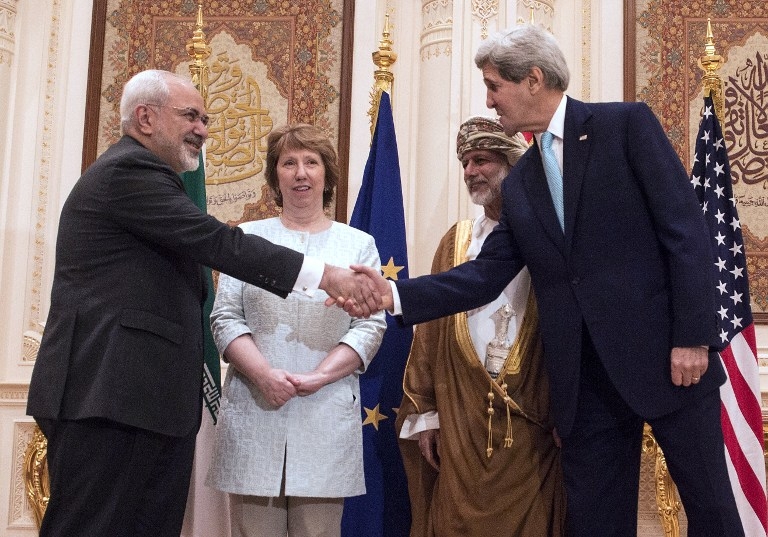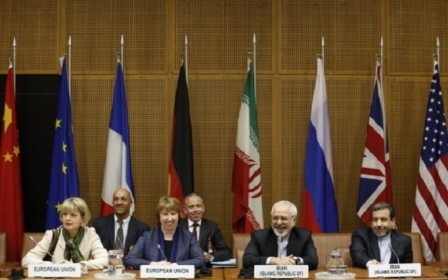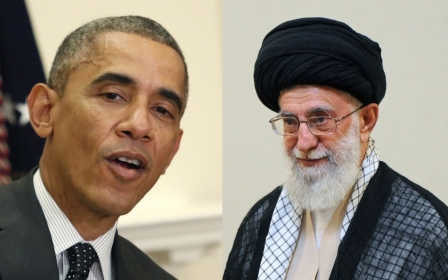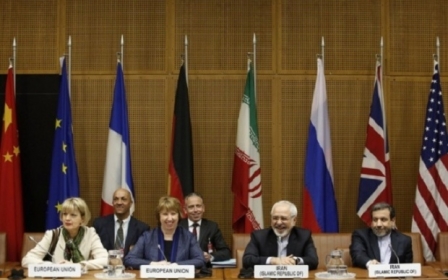US, Iran talks enter day two as Obama warns nuclear deadline may pass

The US and Iran will hold a second day of high-level talks in Oman Monday after a warning from President Barack Obama that there may be no nuclear accord as a deadline looms.
US Secretary of State John Kerry met Iran's Foreign Minister Mohammad Javad Zarif in the Gulf sultanate on Sunday, seeking to resolve key disputes that have left the West's negotiations with the Islamic republic close to deadlock.
An interim accord expires on 24 November, but Iran and world powers have been unable to hammer out what a comprehensive, long-term accord would look like for months.
With both Iran and the US facing pressure at home over the talks, Obama reiterated in a CBS News interview screened Sunday that the sides were still far apart.
"Are we going to be able to close this final gap so that (Iran) can re-enter the international community, sanctions can be slowly reduced and we have verifiable, lock-tight assurances that they can't develop a nuclear weapon?" Obama asked.
"There's still a big gap. We may not be able to get there," he said.
At issue is the number of uranium-enriching centrifuges Iran should be allowed to keep spinning in exchange for sanctions relief and rigorous inspections at its nuclear sites.
The duration of a final settlement between Iran and the P5+1 group - Britain, China, France, Russia and the United States plus Germany - also remains contested.
The West is unconvinced by Tehran's denials that it has never sought a nuclear weapon and wants curbs that would put an atomic bomb forever beyond reach.
Iran, however, insists its nuclear programme is for peaceful, civilian energy production only and wants to vastly enhance its uranium enrichment capabilities for this purpose. The country has vowed to do nothing that would roll back its nuclear activities.
Kerry and Zarif had two meetings lasting more than five hours in Muscat with former EU foreign policy chief Catherine Ashton, the lead negotiator in the talks, also present.
No statements were made when the meeting broke off for the day but the talks were scheduled to resume on Monday, officials said.
Domestic politics overshadow talks
The meeting in Muscat follows the revelation that Obama reportedly wrote to Iran's supreme leader Ayatollah Ali Khamenei to push for a deal, arguing that the Islamic republic and the West have shared regional interests. In a report last week, the Wall Street Journal noted that the most recent letter was Obama's fourth to Khamenei who has never written back.
Their meeting comes after a report this week in the New York Times that Iran had agreed to ship much of its uranium stockpile to Russia where it would be converted and unusable for nuclear weaponry.
Kerry has sought to play down the potential for Iran and the US to fight the IS militant group with the US diplomat saying in Beijing on Saturday "there is no linkage whatsoever" with the nuclear talks.
Domestic politics are hanging heavily over the process, given the loss in midterm elections of the Senate by Obama's Democrats to the Republican party, members of whom have consistently bridled at the White House's negotiations with Iran.
If talks go sour in the coming weeks, it is thought the US Congress may respond with fresh sanctions on Iran.
Obama has the power to veto them, but the prospect of new penalties could disrupt an already protracted process and push the negotiations toward being untenable for the Iranian government.
Zarif and President Hassan Rouhani are already under pressure from lawmakers sceptical of the interim deal who have also said that a final agreement must be ratified by parliament.
As if to drive that message home on Sunday, 200 Iranian MPs signed a statement demanding that Zarif's negotiating team "vigorously defend" the country's nuclear rights and ensure a "total lifting of sanctions".
Although officially supportive, hardliners in Tehran have often been ambivalent about the negotiations, which officially resumed last autumn after earlier secret talks in Oman with US officials set the wheels in motion.
The surprise election last year of Rouhani, who had pledged to revive Iran's sanctions-battered economy, was a turning point on the nuclear issue. But progress has been elusive since the interim deal came into effect in January.
After Kerry and Zarif meet again on Monday, the political directors of the P5+1 powers will hold talks the following day, also in Muscat. The main negotiations then move back to Vienna on 18 November for a final push towards the deadline six days later.
Middle East Eye propose une couverture et une analyse indépendantes et incomparables du Moyen-Orient, de l’Afrique du Nord et d’autres régions du monde. Pour en savoir plus sur la reprise de ce contenu et les frais qui s’appliquent, veuillez remplir ce formulaire [en anglais]. Pour en savoir plus sur MEE, cliquez ici [en anglais].




